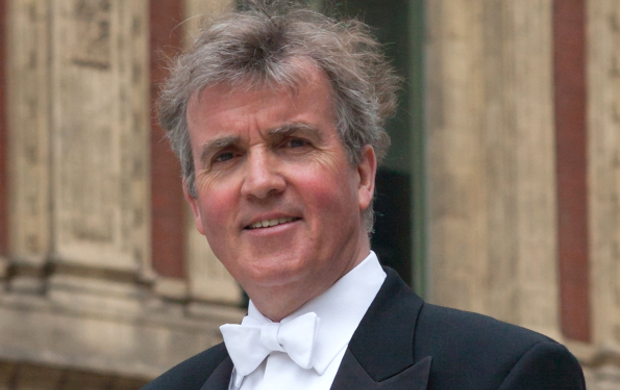Did you always want to be a choral conductor or did you start out as a choral singer or musician?
I was a chorister at St Paul’s Cathedral from the age of eight, and I used to listen to a recording of Brahms’ Requiem, and dreamt of possibly conducting it one day. I then did some directing from the age of about sixteen, and on through university (King’s College, Cambridge), but I only really thought about a professional career as a few breakthrough opportunities came my way in my twenties.
What has been your most exciting performance so far and why?
It’s difficult to single out any one performance but there have been a few highlights. Rachmaninov’s The Bells and Prokofiev’s Alexander Nevsky in Winchester Cathedral this year with the Royal Choral Society were inspirational, and Britten’s War Requiem in the Royal Albert Hall on Remembrance Sunday 2014, the centenary of the outbreak of the First World War, was a great and moving occasion.
We hear you’ve been music director of The Royal Choral Society since 1995! What has changed with you at the helm?
I think the senior membership of the choir would agree that we are leaner and fitter, more dynamic and perform to a significantly higher level than we did twenty years ago. The development of technology and social media also helps us reach a wider audience.
How and when did the Royal Choral Society come about and what are they most known for?
We have a long history, beginning simultaneously with the opening of the Royal Albert hall in 1871. The choir has been conducted by many eminent composers including Verdi, Dvorak, Gounod and Elgar, and for almost 40 years was conducted by Sir Malcolm Sargent. The most enduring performance has been Handel’s Messiah, which the choir has performed at the Royal Albert Hall on almost every Good Friday since the Hall’s opening, and which attracts sell-out audiences to this day.
What or who got you into choral music? Were you introduced to it at a young age?
Yes, from the age of eight to thirteen as a chorister of St Paul’s Cathedral, and then in my university years as Choral Scholar at King’s College, Cambridge. Wonderful as the King’s experience was, the seeds were deeply sown at St Paul’s (though the standard in those days was rather poor!).
Do you have a favourite composer, and if so, why?
Beethoven. Because he encompasses everything, but I am happy that others might say Bach or Mozart, not forgetting Schubert. From a purely conducting perspective, Mahler is one of the most uplifting—and also very great.
Do you have an all-time favourite annual concert?
No, not actually. I am fortunate to be able to conduct great music in all my concerts!
The Royal Choral Society is performing at Holy Trinity Sloane Square on October 21—is this the first smaller-scale, affordable and local concert they will have performed?
We usually perform in large venues, but some, such as Southwark Cathedral, are more intimate, and we have been there a few times. A choir of 140 together with a symphony orchestra needs space both for performers and audience.
The English Chamber Orchestra accompanies the Holy Trinity performance, have you worked with them before?
Yes. They are superb and it has been my privilege to have worked with them a few times over the past years, and I will do so again two weeks later in Canterbury Cathedral.
Tell us more about the Holy Trinity performance—who’s performing, what should we expect, why this venue?
We have three outstanding soloists, including Mary Bevan, a soprano making a big impact these days (along with her sister Sophie).
It’s very hard to fill a huge concert hall, even given the popularity of Haydn’s Creation, so we are trying out this venue for the first time. It’s a lovely place and we hope that local residents will enjoy having top musicians right on their doorstep performing one of the great masterpieces of the choral repertoire. We aim to give a dramatic and polished performance, and the orchestra and soloists will complement the Royal Choral Society in achieving that goal.










